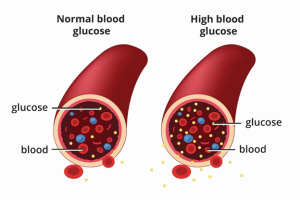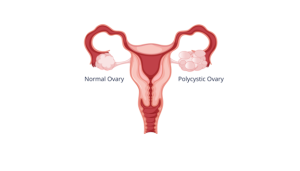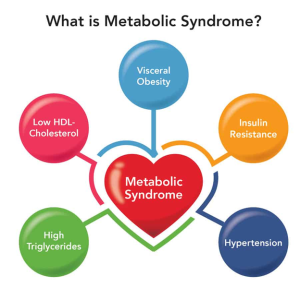Introduction
Complex disorders that can have a major effect on our general health and well-being include metabolic and hormonal diseases. The endocrine and metabolic systems of the body play a complex role in the development and management of conditions such as diabetes, metabolic syndrome, polycystic ovarian syndrome (PCOS), and hypothyroidism. Dietary choices can have a major impact on these systems.

Credit: Bon Secours
While nutrition is vital to our general health, metabolic and hormonal disorders frequently highlight the need for proper nutrition. A healthy diet is essential for controlling chronic illnesses, even though medicinal interventions are frequently necessary.
This article explains the role that nutrition plays in hormonal and metabolic disorders and how dietary changes can enhance the health and quality of life of people who are impacted.
The Effects of Diet on Metabolic and Hormonal Balance
Hormones operate as the body’s chemical messengers, controlling activities including metabolism, growth, and reproduction. What we consume affects many hormonal abnormalities, including those linked to diabetes, PCOS, and thyroid conditions.
There are specific hormones such as insulin, thyroid, and sex hormones that are greatly impacted by nutrition. These effects are seen in:
- Insulin stabilization and control: Eating a diet high in fibre and complex carbs can help control insulin levels, avoiding the ups and downs that lead to insulin resistance and eventually diabetes.
- Cortisol management: Chronic stress can lead to high cortisol levels, promoting weight gain and metabolic malfunction. Lean protein, healthy fats, and antioxidant-rich diets can help counteract the negative effects of stress on cortisol hormone levels.
- Reproductive hormones support: To keep the levels of estrogen, progesterone, and testosterone in a healthy range, nutrients like zinc, magnesium, and omega-3 fatty acids are critical. Hormonal abnormalities are made worse by dietary deficiencies in certain nutrients and elements.
The Connection Between Some Metabolic & Hormonal Disorders and Nutrition
Metabolic and hormonal illnesses develop when the body’s capacity to manage essential processes such as glucose metabolism, hormone production, or fat storage is disrupted. Through their effects on hormone function, blood sugar regulation, and metabolism, nutritional methods can aid in the management of these abnormalities.
Here are some examples of the most prevalent metabolic and hormonal problems and how nutrition may affect them:
Diabetes

Credit: National Institute of Diabetes and Digestive and Kidney Diseases
Diabetes, especially type 2 diabetes, is a metabolic disease marked by elevated blood sugar levels brought on by inadequate insulin synthesis or insulin resistance. Diabetes care revolves around nutrition since eating directly affects blood sugar levels. Therefore For diabetics, a well-balanced diet customized to their needs can be beneficial. This is why Meditrina by Wellahealth is an essential part of managing diabetics and other chronic illnesses, read more about Meditrina here.
Selecting complex carbohydrates from foods like veggies, legumes, and whole grains will help keep blood sugar levels steady. Foods high in fibre reduce blood sugar increases by slowing glucose absorption. Additionally, unsaturated fats, such as those in nuts, seeds, and seafood, can enhance insulin sensitivity and lessen inflammation.
Furthermore, portion control is crucial in blood sugar control, as keeping an eye on meal times and portion amounts will help control blood sugar levels and stop overeating.
Polycystic Ovary Syndrome (PCOS)

Credit: Clinic One
Some women of reproductive age are affected with PCOS, a hormonal illness intimately associated with insulin resistance and metabolic abnormalities. Weight gain, elevated levels of the male hormone androgen, and irregular menstruation periods are common outcomes of this illness.
Nutrition is an important part of PCOS management, low-glycemic foods, like legumes, whole grains, and vegetables, help to stabilize insulin levels and lessen the effect of blood sugar fluctuations on the production of hormones. Additionally, inflammation, which is frequent in PCOS, can be decreased by eating a diet high in antioxidants (leafy greens, and spices like turmeric) and omega-3 fatty acids (found in fatty fish and walnuts). Furthermore, foods high in protein can help with weight management, which is crucial for controlling hormone levels and enhancing the success of conception.
Metabolic Syndrome

Credit: James Town Spine
Metabolic syndrome is a group of conditions that raise the risk of heart disease, stroke, and type 2 diabetes. Metabolic syndrome includes high blood pressure, high blood sugar, obesity (especially extra fat around the waist), and abnormal cholesterol levels. Research has found that Nordic and Mediterranean diets are beneficial in the management of this condition.
There is a link between a lower risk of metabolic syndrome and a diet high in fruits, vegetables, whole grains, healthy fats (such as olive oil), and lean proteins. It is well-recognized that this diet promotes heart health, reduces inflammation, and increases insulin sensitivity. Additionally, foods rich in soluble fibre such as oats, beans, and apples can help decrease cholesterol and improve blood sugar regulation.
In contrast to these diets and food options, consumption of soda, processed foods, and sugary snacks is detrimental to overall health, predisposing to metabolic syndrome and other adverse health conditions.
Role of Personalized Nutrition In Metabolic and Hormonal Conditions
Personalized nutrition can be especially helpful in addressing metabolic and hormonal diseases since it customizes dietary recommendations based on an individual’s genetic composition, lifestyle, and specific health concerns.
There is no one-size-fits-all nutritional tip, seeking advice from medical specialists such as endocrinologists and dietitians can assist in developing a personalized food plan that caters to your specific health requirements. Through a personalized strategy that emphasizes individual reactions to nutrition and food, metabolic and hormonal illnesses are better managed.
Meditrina is a Nutrition Support Clinic that provides easy access to registered dietitians, personalized meal plans, and expert clinical guidance to manage chronic illness better. You can read more here.
Conclusion
You can take charge of your health when you recognize the significant relationship between your body functioning and the food you eat.
Nutrition is essential for managing metabolic and hormonal disorders. People with metabolic and hormonal disorders can better manage their symptoms, enhance hormone management, and lower the risk of problems by adopting educated food decisions. The correct diet may make a huge difference, regardless of whether you’re managing a chronic illness or just want to keep your hormones in balance.
To subscribe to Meditrina and our affordable healthcare coverage for as low as #800/month, contact Wellahealth today!






